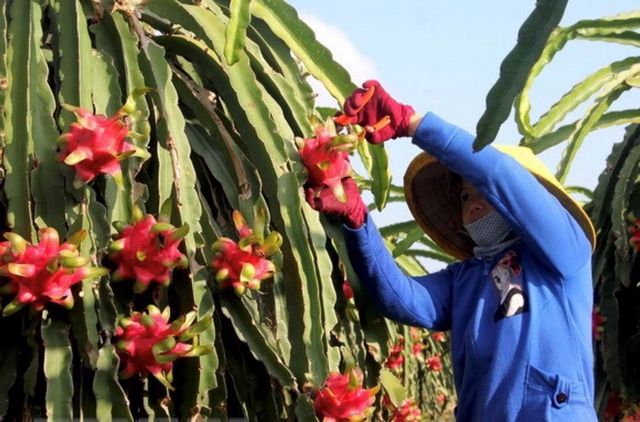The Animal and Plant Health Inspection Service, an agency of the US Department of Agriculture, will send officials to Việt Nam to check the quality of fruits to be exported to the US.

The Animal and Plant Health Inspection Service, an agency of the US Department of Agriculture, will send officials to Viet Nam to check the quality of fruits to be exported to the US.
This information was released by Nguyen Quang Hieu, an official from the Ministry of Agriculture and Rural Development (MARD)’s Plant Protection Department, at a meeting in Ha Noi on Wednesday.
Hieu said the US officials’ visit has been postponed due to the COVID-19 pandemic. The department is seeking seats on several flights of airlines including Asiana, Korea Air and Nippon Airline for APHIS quarantine officials to come to Viet Nam.
“We will try our best to bring the APHIS officials to Viet Nam as soon as possible,” Hieu said.
The US required its officials, including APHIS ones, working in Viet Nam to return home since March when the pandemic started.
Nguyen Dinh Tung, the CEO of Vina T&T Group which has exported a lot of Vietnamese fruits to US, said when the US withdrew all staff to return home, those still working in the US Embassy in Viet Nam were assigned to conduct quarantine for fresh fruit exported to the US, helping Vietnamese businesses export twice a week. However, for over a week now, they have been busy with their official work and cannot continue quarantine.
“Therefore, the export of fresh fruits such as longan, mango, dragon fruit and rambutan to the US has been delayed. If this situation is not solved, many Vietnamese businesses and gardeners will suffer big losses,” Tung said.
General Secretary of Vietnam Fruits and Vegetable Association Dang Phuc Nguyen said it’s necessary to open more irradiation centres to minimise cost and have a competitive price on the market.
Nguyen said besides the US, some other markets including Australia and New Zealand also required irradiation before exporting fruits. However, the fruit irradiation is currently only undertaken by a company in HCM City.
“The Viet Nam’s fruit price is not yet competitive because there is only one irradiation factory in HCM City. Fruits such as longan and mango in the northern province of Son La must be transported to HCM City for irradiation to be exported. Meanwhile, Thailand has four factories, the price is very competitive,” Nguyen said.
“The US is a large market and one of the main markets for Vietnamese fruit exports. Therefore, we recommend the MARD to arrange for two or three fruit irradiation factories nationwide,” he added.
According to a MARD report, in the first seven months of this year, despite the COVID-19 pandemic, Viet Nam’s export value of vegetables and fruits to the US market reached US$77 million, up 9.8 per cent year-on-year. Some other markets also saw an increase in export value such as Thailand with $79.4 million, Japan with $68.2 million, Taiwan with $43 million, and the Netherlands with $42.7 million.
In terms of imports, in the first half of the year, the US, China and Australia were the three largest markets supplying imported fruits and vegetables to Viet Nam. The import from the US increased by 27.5 per cent, while imports from China and Australia decreased by 35.2 per cent and 12.5 per cent, respectively. VNS





